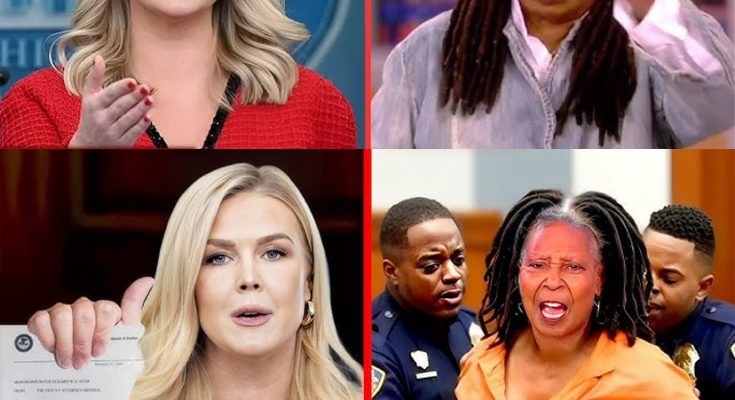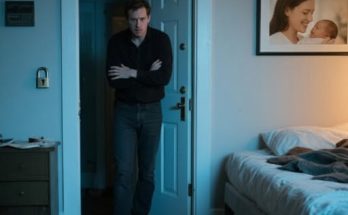Whoopi Goldberg Breaks Down Over Karoline Leavitt’s Comments, Drops Bombshell Receipts in Court
In a stunning turn of events that has captured national attention, veteran actress and television icon Whoopi Goldberg reportedly broke down emotionally in court this week following a public war of words with rising political commentator Karoline Leavitt. What began as a sharp political disagreement on live television has now escalated into a high-profile legal battle that could send ripples through both the entertainment industry and political media.
It all started during a recent broadcast where Leavitt, known for her conservative viewpoints, criticized Goldberg for her longstanding political commentary on The View. Leavitt accused Goldberg of misusing her influence to push personal agendas rather than provide balanced perspectives. Her comments, though brief, ignited a firestorm of reactions across social media platforms, prompting heated debates among fans and critics alike.
Goldberg, a veteran in the industry who is no stranger to controversy, remained silent for several days. However, she later responded in an emotionally charged segment on The View, stating that she felt personally attacked and unfairly maligned. She emphasized that after decades of working in the public eye, the weight of constant criticism has become harder to bear, especially when the attacks feel deeply personal.
While many thought the situation would dissipate like other public spats, Goldberg took the extraordinary step of initiating legal proceedings. Sources close to the matter revealed that she filed a defamation lawsuit, citing damage to her professional reputation and emotional distress. According to courtroom insiders, what happened next left everyone speechless.
Goldberg’s legal team unveiled a collection of evidence—referred to in court documents as “receipts”—that allegedly pointed to a sustained and deliberate campaign of online harassment. These documents reportedly included internal communications, private emails, and media manipulation tactics, some of which appeared to involve political strategists and media operatives aligned with Leavitt’s professional network.
The courtroom atmosphere turned tense as Goldberg’s attorneys read portions of the evidence aloud. The materials suggested that clips from The View had been strategically edited and distributed in ways meant to discredit Goldberg, stirring outrage and mobilizing hate-fueled online attacks. In some cases, anonymous social media accounts spreading the most vitriolic messages were allegedly traced back to coordinated operations.
Legal experts observing the case believe this may set a groundbreaking precedent. Unlike typical celebrity lawsuits centered on libel or slander, this case hinges on the digital impact of political influence campaigns. The court will need to determine whether the targeted messaging crossed the line from protected speech into coordinated defamation.
Goldberg’s breakdown in court reportedly occurred during testimony about the personal toll the campaign had taken on her. Witnesses claim she spoke candidly about feelings of isolation, betrayal, and exhaustion, saying that for the first time in her career, she considered walking away from the spotlight entirely. Those present described the moment as both raw and powerful, with the courtroom falling into a stunned silence.
Leavitt, for her part, has not directly addressed the lawsuit, though a representative issued a brief public statement asserting her right to freedom of speech and denying any organized effort to target Goldberg. Her legal team is expected to request a dismissal of the case in the coming weeks, citing insufficient evidence.
Meanwhile, Goldberg has received an outpouring of support from longtime colleagues in the entertainment industry. Co-hosts from The View, along with several Hollywood allies, have taken to social media to defend her, praising her courage and longevity in a brutal industry. Some, however, worry that the case may reveal uncomfortable truths about how political discourse is shaped and weaponized in modern media.
With more evidence reportedly set to be introduced, and high-profile witnesses potentially being called to testify, the case is far from over. What began as a verbal jab on television has transformed into one of the most talked-about legal showdowns in recent memory. The outcome could alter the relationship between media personalities and political commentators for years to come.
As this dramatic courtroom battle unfolds, one thing is certain: the intersection of fame, politics, and accountability has never been more explosive.



